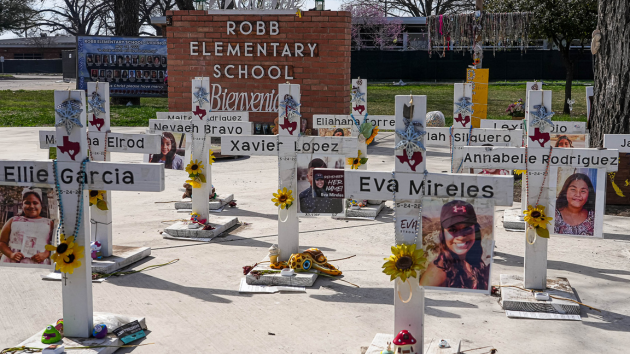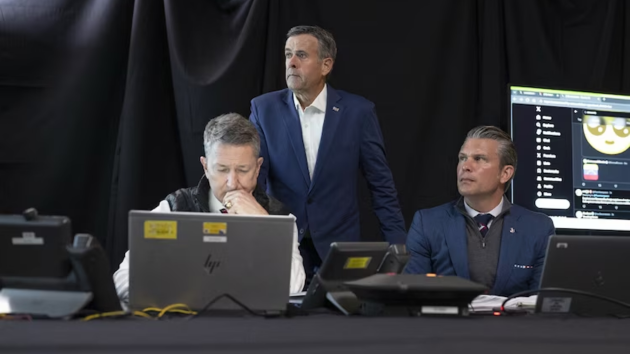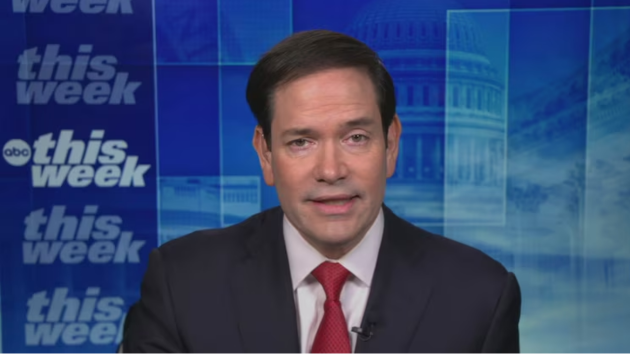Three takeaways from a dramatic day of closing statements in Trump’s fraud trial
Written by ABC Audio ALL RIGHTS RESERVED on January 13, 2024

(NEW YORK) — Donald Trump walked into the courtroom of his $370 million civil fraud trial Thursday and did exactly what he hoped to do: break all the rules established by the judge in order to deliver a brief closing statement.
Then he walked out scot-free.
The former president’s surprise statement provided a dramatic end to the months-long trial, which threatens to take away the namesake buildings, businesses, and reputation that launched Trump into professional and political stardom. Over an 11-week trial, the New York attorney general alleged that Trump made hundreds of millions of dollars by overstating his assets on his statements of financial condition to get more favorable loan terms.
Judge Arthur Engoron initially issued a non-negotiable directive should Trump elect to speak during closing statements: He could not make political statements, and he could not impugn those involved in the trial, according to emails posted to the court docket Wednesday.
When Trump’s attorneys pushed back against those requirements Wednesday afternoon and refused to agree with the rules, Engoron forbade Trump from speaking.
And yet, when Trump attorney Christopher Kise asked the judge midway through closings Thursday if he would reconsider his decision — and the judge asked Trump if he would stay within the bounds of his requirements — Trump launched right into this statement.
“Well I think, your honor, this case goes outside the facts,” Trump said, ignoring the judge’s edict as he barreled ahead. “This is a political witch hunt that should be set aside.”
“I’m an innocent man. I’ve been persecuted by someone running for office,” Trump said calmly while sitting with his arms clasped at his counsel table. “This statute is vicious. It doesn’t give me a jury. It takes away my rights.”
Trump’s five-minute statement put an exclamation point on a seesaw day of pronouncements and retorts. Here are three main takeaways from the two sides’ closing arguments.
Trump admitted a mistake
In a rare move, amid a torrent of accusations and personal attacks, Trump admitted that his company did make a mistake in his personal statement of financial condition.
“They made a mistake. It was an honest mistake,” Trump said about the decision to value his Trump Tower penthouse as being three times larger than it actually is. The mistake eventually resulted in the property being overvalued by $114 million to $207 million.
Trump’s acknowledgement is likely to play into the judge’s decision later this month, when Engoron will have to determine whether or not the overvaluation was intentional. In a ruling last month, the judge characterized the sizing error and other similar issues as “misstatements at best and fraud at worst.”
Trump’s sons might win
While Trump has stepped away from the real estate business to pursue politics, his eldest sons Eric Trump and Donald Trump Jr. both continue to hold important stakes in the family business. When he issues his ruling, Engoron has the power to limit the ability of Trump and his two sons to conduct business in New York moving forward.
However, during an exchange with a state attorney on Thursday, Engoron signaled that he was not convinced that Trump’s sons had any knowledge of the company’s fraud.
“What evidence do you have — I just haven’t seen it — that they knew that there was fraud?” Engoron asked state attorney Andrew Amer.
“They can’t say they didn’t bother paying attention to it. That is just not a defense,” Amer responded.
Engoron expressed skepticism at Amer’s response and appeared to feel that Donald Trump Jr. particular was unaware of the issues alleged by the attorney general.
The state has a new theory
Faced with the need to prove that the alleged fraud was intentional, state attorney Kevin Wallace’s closing statement unveiled a theory to explain the motive behind it.
Wallace alleged that roughly $775 million in expenses to renovate properties, coupled with the expense of Trump’s 2016 presidential campaign, created a “cash crunch” for the Trump Organization during the period in question. Displaying a chart that he said tracked Trump’s cash flow, Wallace alleged that — had the company not resorted to fraud to get favorable terms on its loans — it would have had a negative cash flow by 2017.
By opting to commit fraud, “They didn’t have to choose between their priorities,” Wallace alleged regarding the company’s business expenses and Trump’s presidential campaign.
Engoron, however, appeared to feel the argument was only conjecture. The alleged fraud also predated the timetable in Wallace’s argument.
The judge said he hoped to issue a final ruling in the case by Jan. 31.
Copyright © 2024, ABC Audio. All rights reserved.

 KVSP
KVSP 




